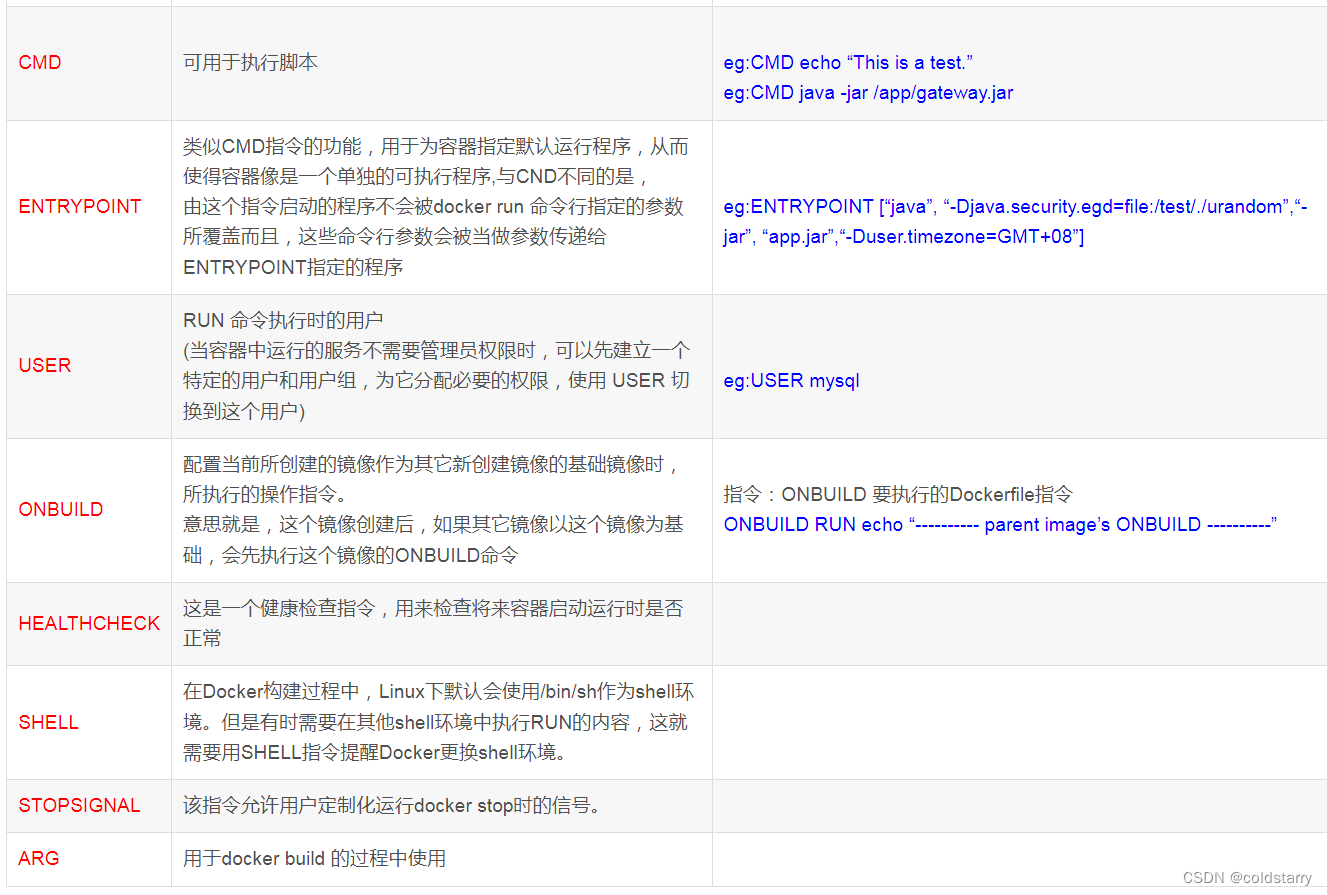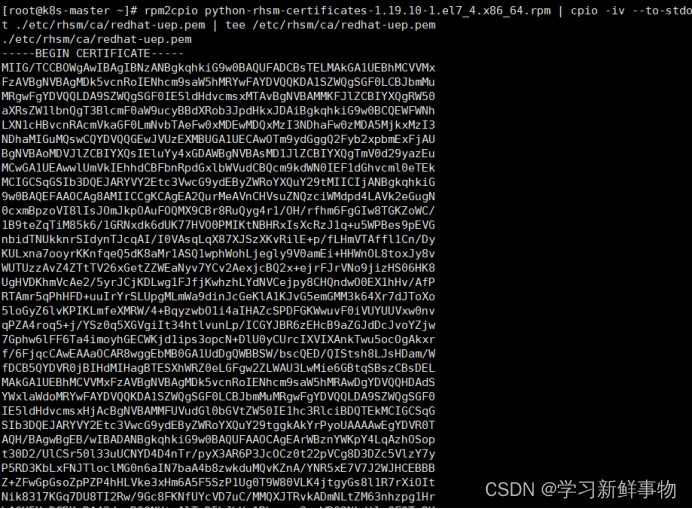目录
exec函数
execlp
参数file
返回值
测试代码1
测试结果
execl
测试代码2
测试结果
execvp
测试代码3
测试结果
exec函数
fork创建子进程后执行的是和父进程相同的程序,但有可能执行不同的代码分支,子进程往往要调用一种exec函数以执行另一个程序。当进程调用一种exec函数时,该进程的用户空间代码和数据完全被新程序替换,从新程序的启动例程开始执行。调用exec并不创建新进程,所以调用exec前后该进程的id并未改变。将当前进程的.text、.data替换为所要加载的程序的.text、.data,然后让进程从新的.text第一条指令开始执行,但进程ID不变,换核不换壳。
有六种以exec开头的函数,统称exec函数。
int execl(const char *path, const char *arg, ...);
int execlp(const char *file, const char *arg, ...);
int execle(const char *path, const char *arg, ..., char *const envp[]);
int execv(const char *path, char *const argv[]);
int execvp(const char *file, char *const argv[]);
int execve(const char *path, char *const argv[], char *const envp[]);execlp
借助PATH环境变量,加载新的程序。
int execlp(const char *file, const char *arg, ...);参数file
要加载的程序的名字。该函数需要配合 PATH 环境变量来使用,当PATH中所有目录搜索后没有参数file则出错返回。该函数通常用来调用系统程序。如:ls、date、cp、cat等命令。
返回值
成功:不返回
失败:返回-1
测试代码1
使用子进程执行ls -al命令。
#include <stdlib.h>
#include <stdio.h>
#include <unistd.h>
#include <fcntl.h>
int main(int argc, char *argv[])
{
printf("程序开始运行!\n");
printf("当前进程的ID是%d。\n", getpid());
pid_t jin_cheng = fork();
if (jin_cheng < 0)
{
perror("创建进程错误!");
exit(1);
}
else if (jin_cheng == 0)
{
execlp("ls","ls","-a","-l",NULL);//支持多个参数传入的函数,使用NULL作参数传入结束符,相当于哨兵
perror("进程错误!");
exit(1);
}
else if (jin_cheng > 0)
{
sleep(1);
printf("这是父进程,当前进程的ID是%d。\n", getpid());
printf("父程序结束!\n");
}
return 0;
}测试结果

execl
加载一个进程, 通过路径+程序名来加载。
int execl(const char *path, const char *arg, ...);测试代码2
/*
CeShi2_1.c
*/
#include <stdlib.h>
#include <stdio.h>
#include <unistd.h>
#include <fcntl.h>
int main(int argc, char *argv[])
{
printf("程序开始运行!\n");
printf("当前进程的ID是%d。\n", getpid());
pid_t jin_cheng = fork();
if (jin_cheng < 0)
{
perror("创建进程错误!");
exit(1);
}
else if (jin_cheng == 0)
{
execlp("./CeShi2_2", "./CeShi2_2", NULL); //支持多个参数传入的函数,使用NULL作参数传入结束符
perror("进程错误!");
exit(1);
}
else if (jin_cheng > 0)
{
sleep(1);
printf("这是父进程,当前进程的ID是%d。\n", getpid());
printf("父程序结束!\n");
}
return 0;
}/*
CeShi2_2.c
*/
#include <stdlib.h>
#include <stdio.h>
#include <unistd.h>
#include <fcntl.h>
int main(int argc, char *argv[])
{
printf("这是子进程,当前进程的ID是%d,你好,世界!\n", getpid());
return 0;
}测试结果

execvp
加载一个进程,使用自定义环境变量env。封装执行命令。同样需要配合环境变量进行使用。
int execvp(const char *file, char *const argv[]);测试代码3
使用execvp函数实现,使用子进程执行ls -al命令。
#include <stdlib.h>
#include <stdio.h>
#include <unistd.h>
#include <fcntl.h>
int main(int argc, char *argv[])
{
printf("程序开始运行!\n");
printf("当前进程的ID是%d。\n", getpid());
pid_t jin_cheng = fork();
if (jin_cheng < 0)
{
perror("创建进程错误!");
exit(1);
}
else if (jin_cheng == 0)
{
char *argv[] = {"ls", "-a", "-l", NULL};
execvp("ls", argv);
perror("进程错误!");
exit(1);
}
else if (jin_cheng > 0)
{
sleep(1);
printf("这是父进程,当前进程的ID是%d。\n", getpid());
printf("父程序结束!\n");
}
return 0;
}测试结果
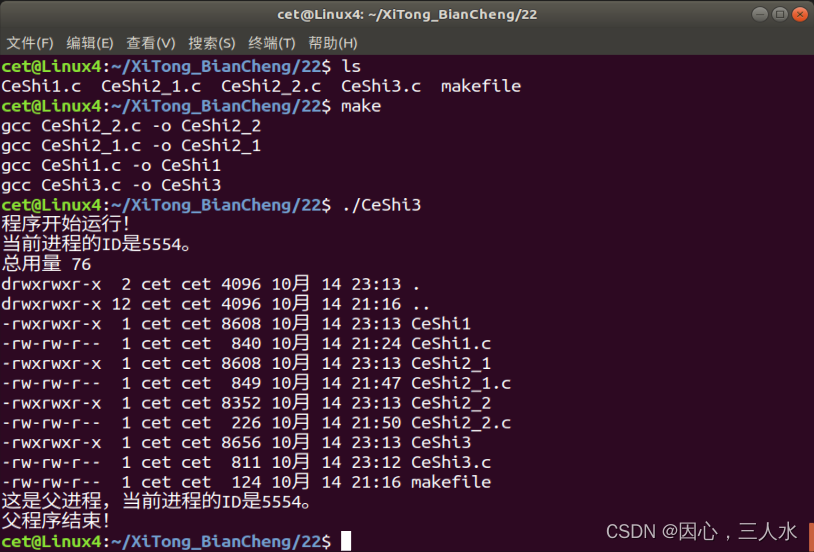


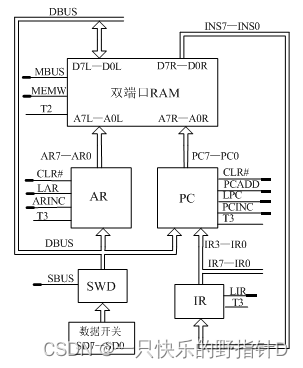
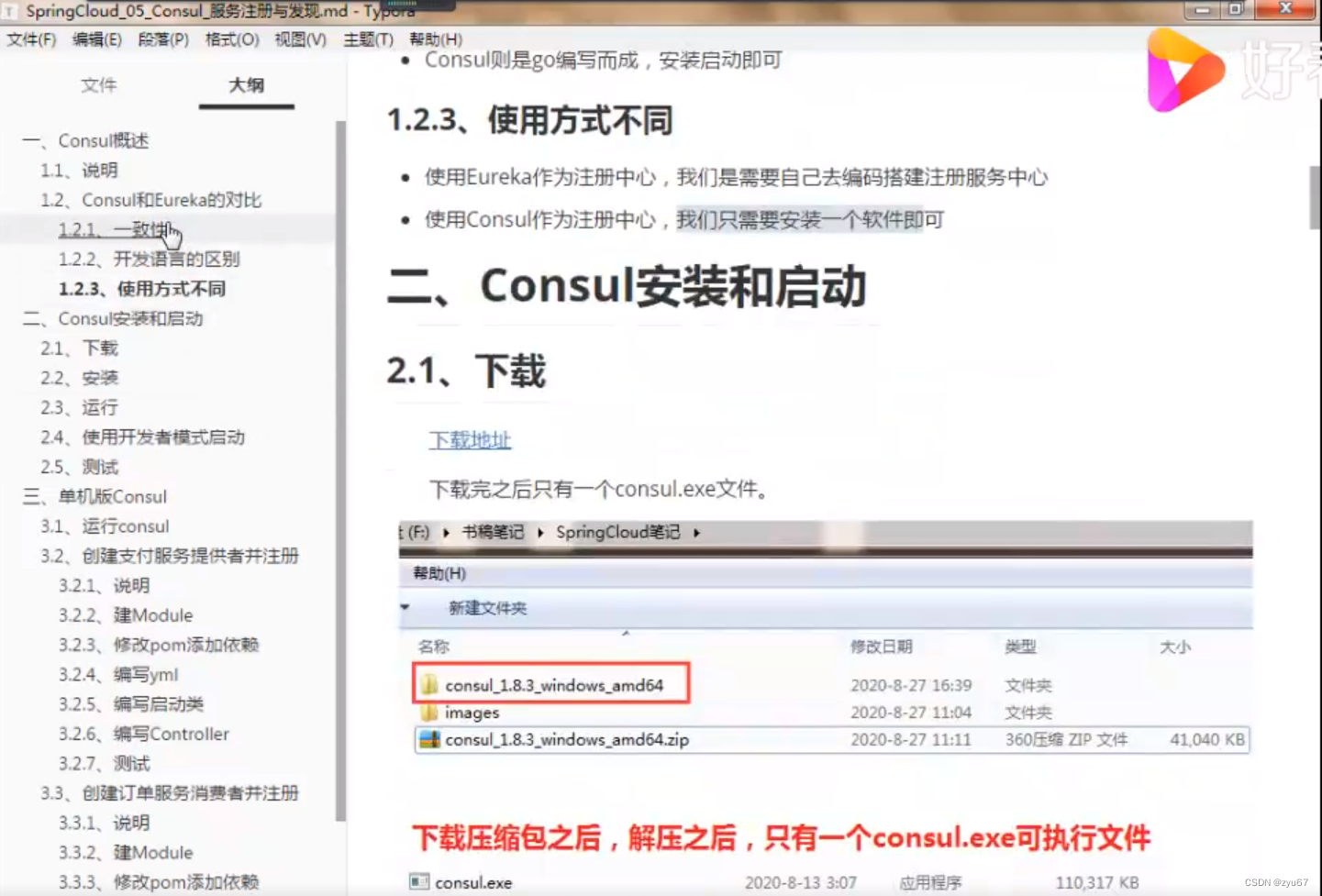




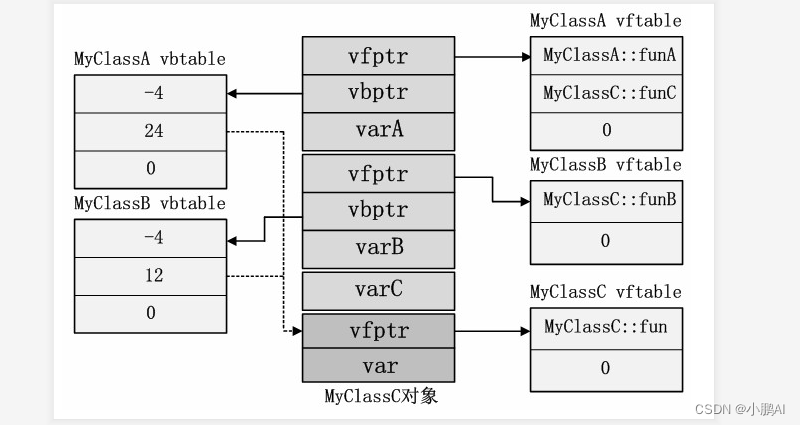


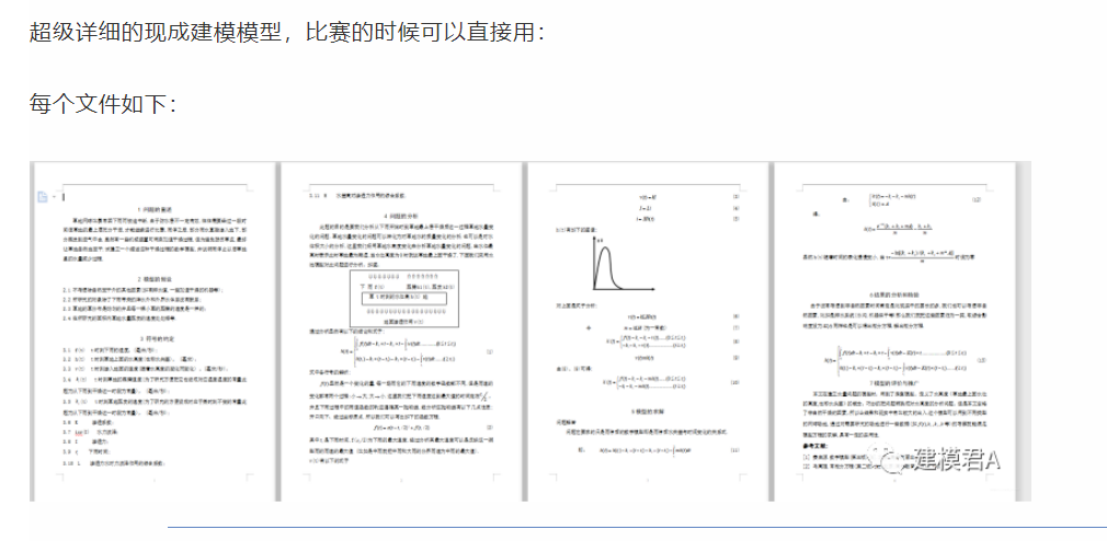
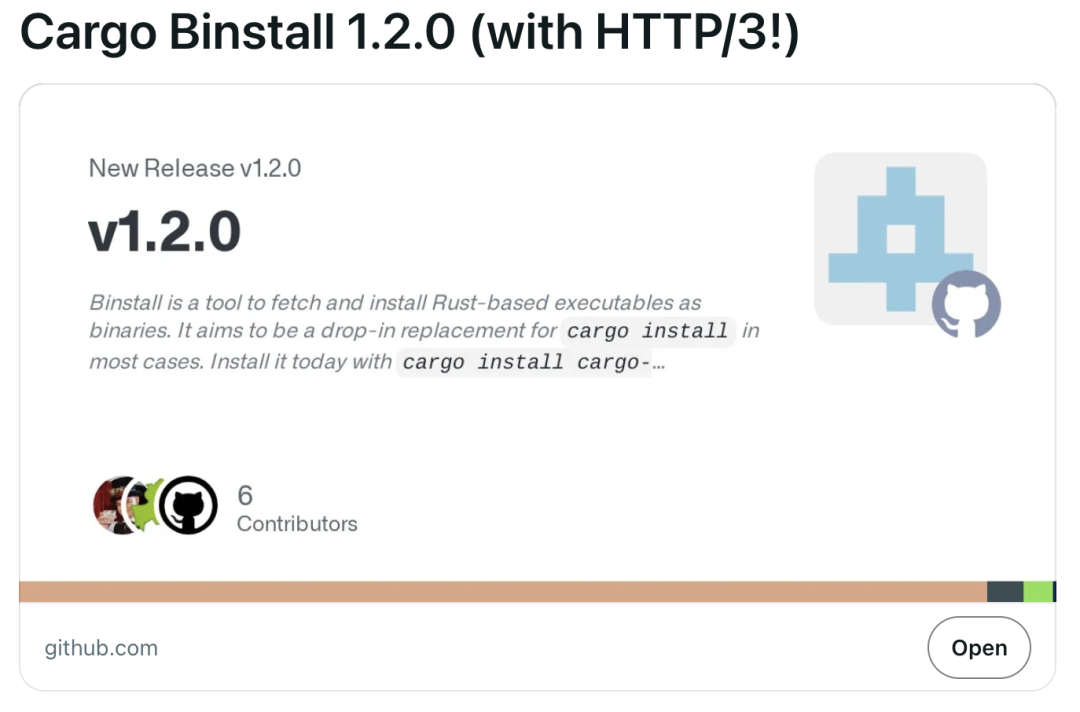
![GPU Microarch 学习笔记 [1]](https://img-blog.csdnimg.cn/9ef406ed96d04780bae1afc478a5b869.png)

